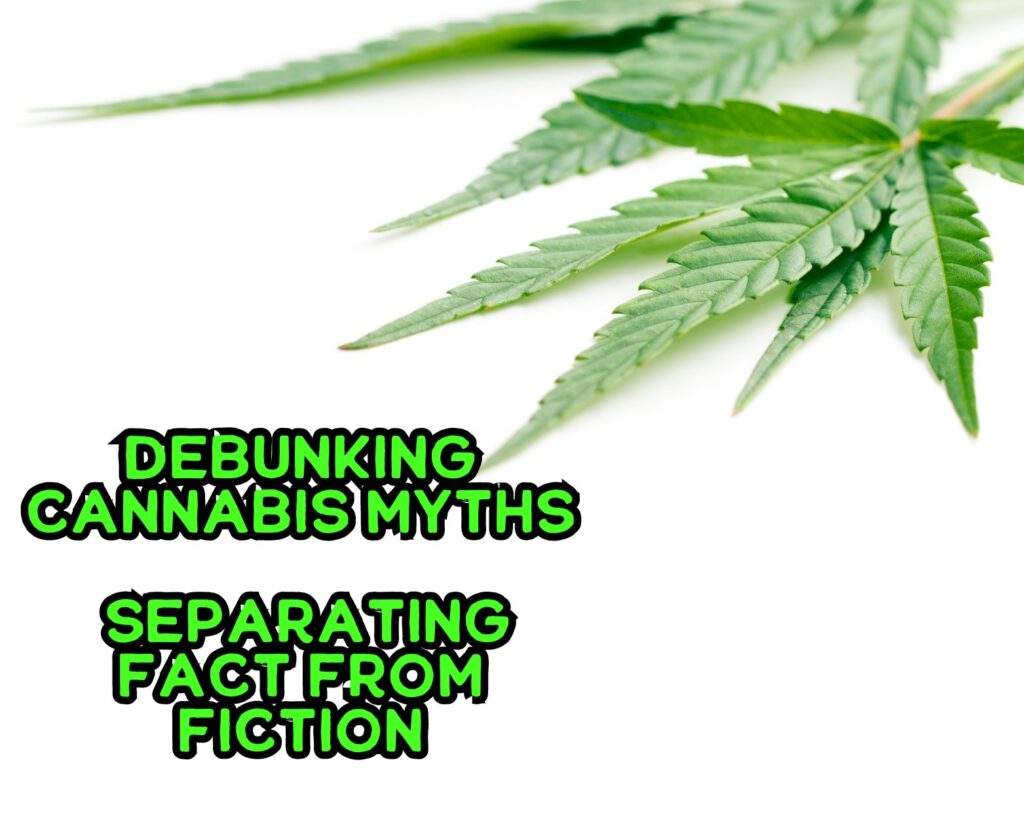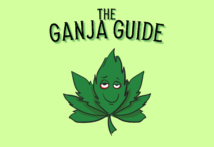In recent years, cannabis has become a topic of intense discussion and research, leading to a shift in public perception. However, several myths still persist about its use and effects. This article aims to debunk common cannabis myths by presenting facts, supported by comprehensive resources like 🌿 The Comprehensive Guide to Herbalism for Beginners 🌿 and 🍃 The Cannabis Grow Bible 🍃.
Myth 1: Cannabis Has No Medicinal Benefits
Fact:
Cannabis has been recognized for its medicinal properties, particularly in managing pain, nausea, and certain neurological disorders. Resources like 🍃 The Cannabis Grow Bible 🍃 provide in-depth information on how different strains can be used for medicinal purposes.

Myth 2: Cannabis Is Highly Addictive
Fact:
While cannabis can be habit-forming for some individuals, its addiction rates are significantly lower compared to substances like alcohol and tobacco. Understanding the properties of various herbs, as explained in 🌿 The Comprehensive Guide to Herbalism for Beginners 🌿, can offer insights into its addictive potential.
Myth 3: Cannabis Use Always Leads to Harder Drugs
Fact:
The “gateway drug” theory has been largely debunked. Many people use cannabis without ever progressing to harder substances. The cultivation and use of cannabis, as detailed in 🍃 The Cannabis Grow Bible 🍃, show that its use is often independent of other drugs.
Myth 4: Cannabis Kills Brain Cells
Fact:
Current research indicates that cannabis does not kill brain cells. In fact, some studies suggest its potential in promoting neurogenesis. Books like 🌿 The Comprehensive Guide to Herbalism for Beginners 🌿 explore the natural properties of herbs, including cannabis, and their effects on the body.
Myth 5: Legalizing Cannabis Leads to Increased Crime Rates
Fact:
Studies in regions where cannabis has been legalized show no significant increase in crime rates. In fact, legalization often leads to a decrease in drug-related crimes. 🍃 The Cannabis Grow Bible 🍃 discusses the impact of cannabis cultivation and use in a legal context.
The myths surrounding cannabis are gradually being dispelled by scientific research and factual information. Resources like 🌿 The Comprehensive Guide to Herbalism for Beginners 🌿 and 🍃 The Cannabis Grow Bible 🍃 are invaluable for anyone looking to understand the true nature of cannabis and its place in both medicinal and recreational contexts. As the conversation around cannabis continues to evolve, it’s crucial to stay informed and base opinions on facts rather than fiction.
Is Cannabis Effective in Treating Chronic Pain?
Answer: Yes, cannabis is often used to treat chronic pain. Its compounds, particularly CBD, have been found to have pain-relieving properties. For a deeper understanding of its medicinal uses, 🍃 The Cannabis Grow Bible 🍃 offers comprehensive insights.
Can Cannabis Help with Anxiety and Depression?
Answer: Cannabis, especially strains high in CBD, has shown potential in managing symptoms of anxiety and depression. However, its effects can vary based on the individual and the strain used. The 🌿 Comprehensive Guide to Herbalism for Beginners 🌿 provides a broader perspective on herbal remedies for various conditions, including mental health.
Is It Safe to Use Cannabis During Pregnancy?
Answer: The use of cannabis during pregnancy is generally not recommended. There is ongoing research about its effects on fetal development, and it’s best to consult a healthcare provider for guidance.
How Does Cannabis Affect Memory and Cognition?
Answer: While heavy and prolonged use of cannabis, particularly in adolescence, may impact memory and cognition, moderate use in adults shows less significant effects. For detailed information on cannabis properties, 🍃 The Cannabis Grow Bible 🍃 is a valuable resource.
Can Cannabis Be Used to Treat Cancer?
Answer: Cannabis is used to alleviate symptoms related to cancer treatments, such as nausea and pain, but there is no conclusive evidence that it can cure cancer. The therapeutic aspects of cannabis and other herbs are explored in 🌿 The Comprehensive Guide to Herbalism for Beginners 🌿.
What Are the Long-Term Effects of Cannabis Use?
Answer: The long-term effects of cannabis can vary. Some studies suggest potential impacts on mental health and cognition, but more research is needed. For cultivation and usage details, refer to 🍃 The Cannabis Grow Bible 🍃.
Understanding cannabis requires a nuanced approach, considering both its benefits and potential risks. Resources like 🌿 The Comprehensive Guide to Herbalism for Beginners 🌿 and 🍃 The Cannabis Grow Bible 🍃 are essential for anyone seeking a deeper knowledge of cannabis and its place in herbal medicine. As research continues to evolve, these resources can provide valuable insights into the complex world of cannabis.
As an Amazon Associate we earn from qualifying purchases through some links in our articles.




